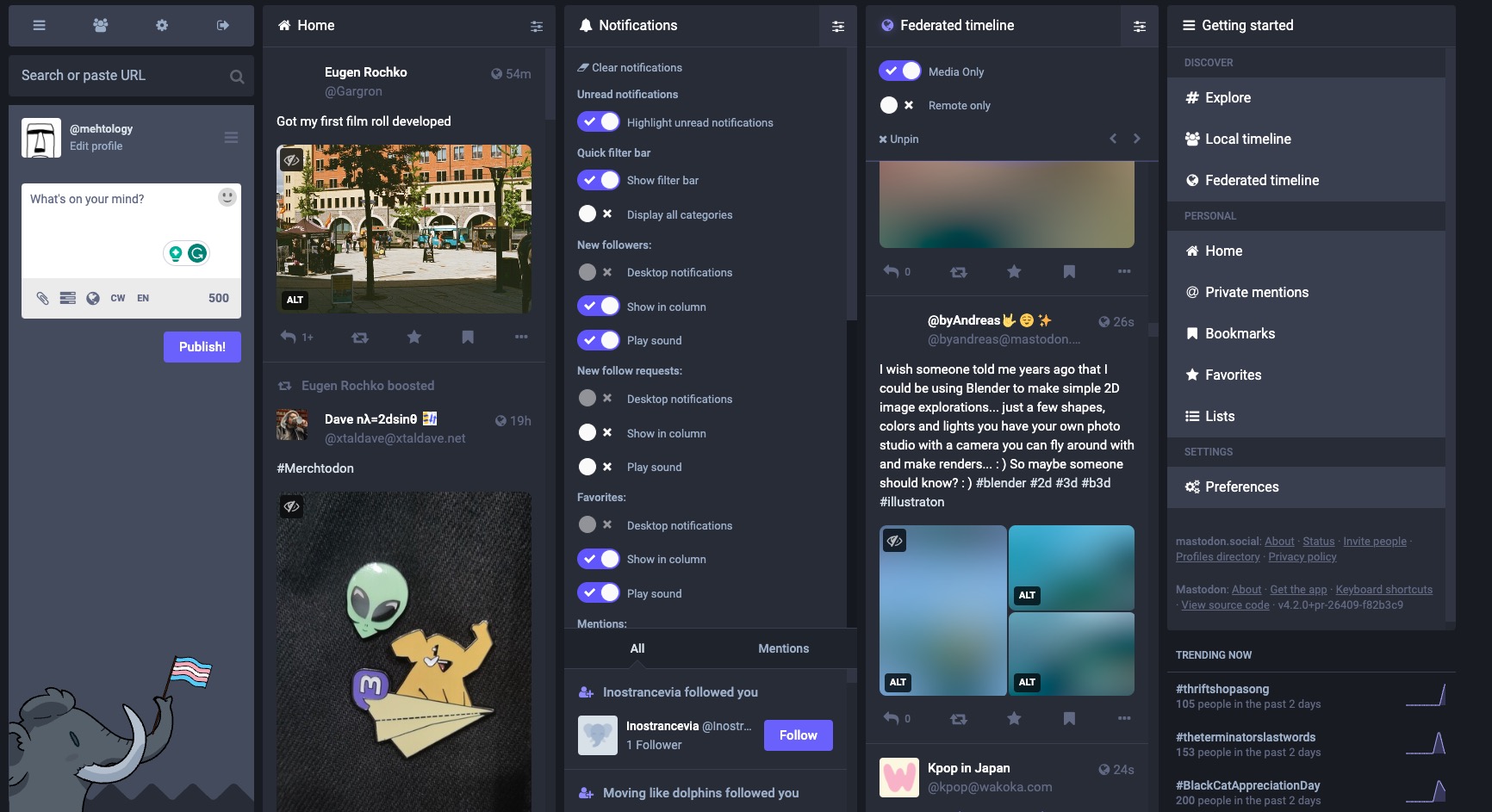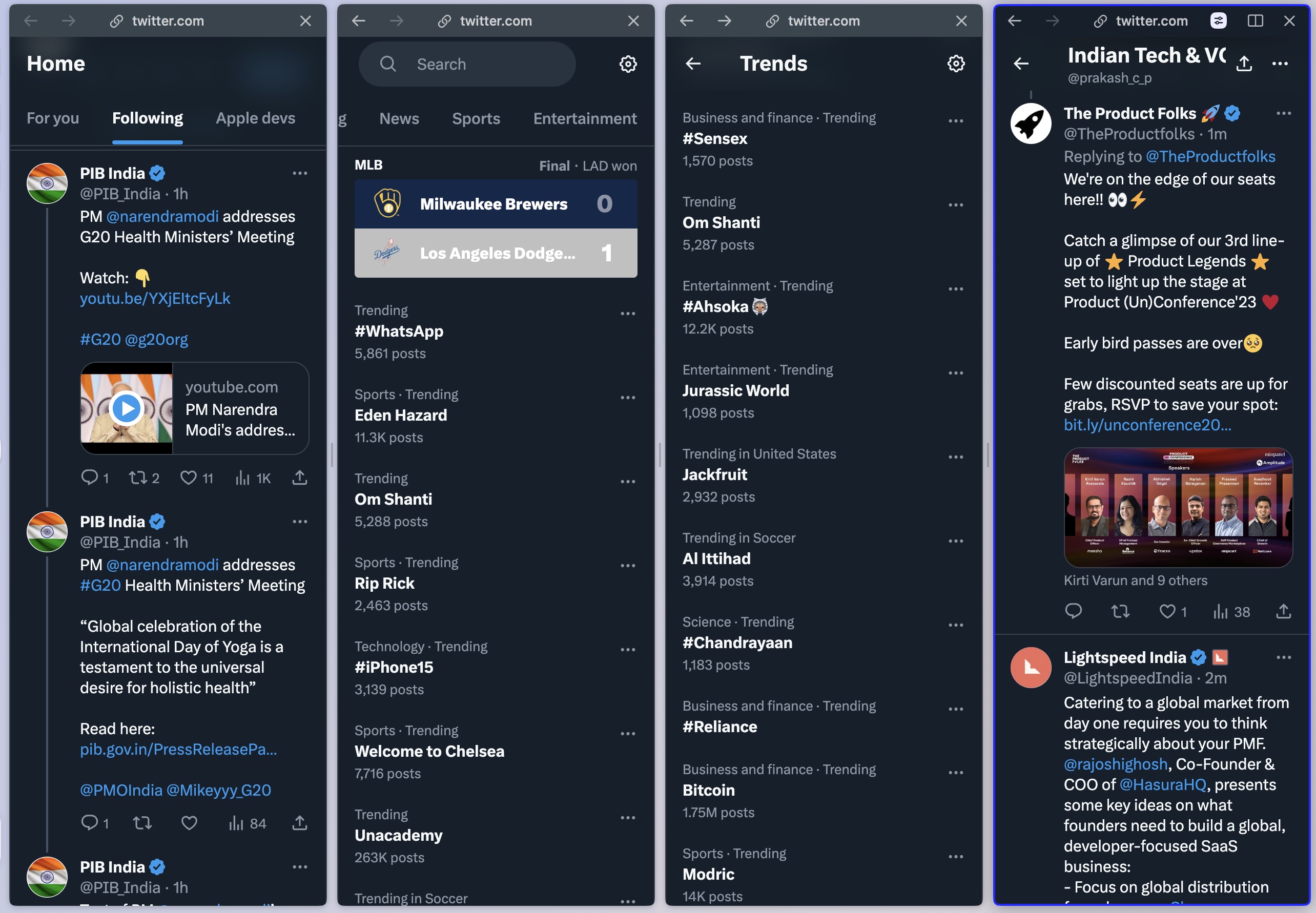Searching for a TweetDeck alternative is a frustrating task

We knew this was coming. Elon Musk-owned X (formerly Twitter) finally made XPro (formerly TweetDeck) a subscriber-only product.
It was a great tool for journalists, researchers and social media consultants to keep track of different timelines, lists, trends and keywords at the same time. The sad part is that it’s hard to find a one-to-one alternative to TweetDeck — at least one that’s either free or cheap.
Hootsuite is the closest with its custom content discovery streams feature. But its subscription starts from $99 per month. And if you are only looking for the multiple timeline feature rather than scheduling, link tracking and other social media marketing-related tools Hootsuite or alternatives like Sprout Social and Buffer are not useful.
If you are planning to move away from Twitter, Mastodon supports an in-built setting for a multi-column view on the desktop. You can enable it through Preferences > Appearance > Enable Advanced Web Interface.

Multi-column on Mastodon on the web. Image Credits: Screenshot by TechCrunch
If you were planning to follow different publications to track news, there is a Twitter mirror called press.coop on Mastodon for popular news outlets. It has a handy timeline of posts from all those publications on the fediverse for you to look at. And if you want to see them in your timeline, you can also follow them through the press.coop directory.
To look for your Twitter network on Mastodon, you can use a tool like Fedifinder, and then build lists to replicate the TweetDeck experience. Alternatively, you also can use a paid app like Tapbot’s Ivory for Mastodon on the desktop for a multi-column experience.
While Bluesky is a limited invite-only social network at the moment, you can use apps like Skydeck or Blueskydeck to replicate the multi-column experience on it.
If you are not on any of these social networks and still use Twitter, you can use a hack. It’s not as effective as using a dedicated app or a tool, but it works well for now. The Browser Company’s Arc browser allows you to add up to four tabs to the split screen view. So you can treat them like TweetDeck columns. Also, it has a feature named Boosts, which lets you modify web pages and remove elements. That means you can modify Twitter according to your taste.

Image Credits: Screenshot by TechCrunch
I’m glad I’m not the only one hacking together a TweetDeck lookalike in Arc.
The situation of not finding a good TweetDeck alternative is frustrating, but we wouldn’t have faced this scenario if Twitter didn’t change its API’s pricing structure. If the social network offered amiable prices instead of a $42,000 per month enterprise tier — it might be the only option for developers to make a TweetDeck alternative — we would have many developer-built tools at our service.
Essentially, you either have to buck in and pay $8 per month to use TweetDeck, or switch social networks and hope that you might be able to get similar information in the desired format.

